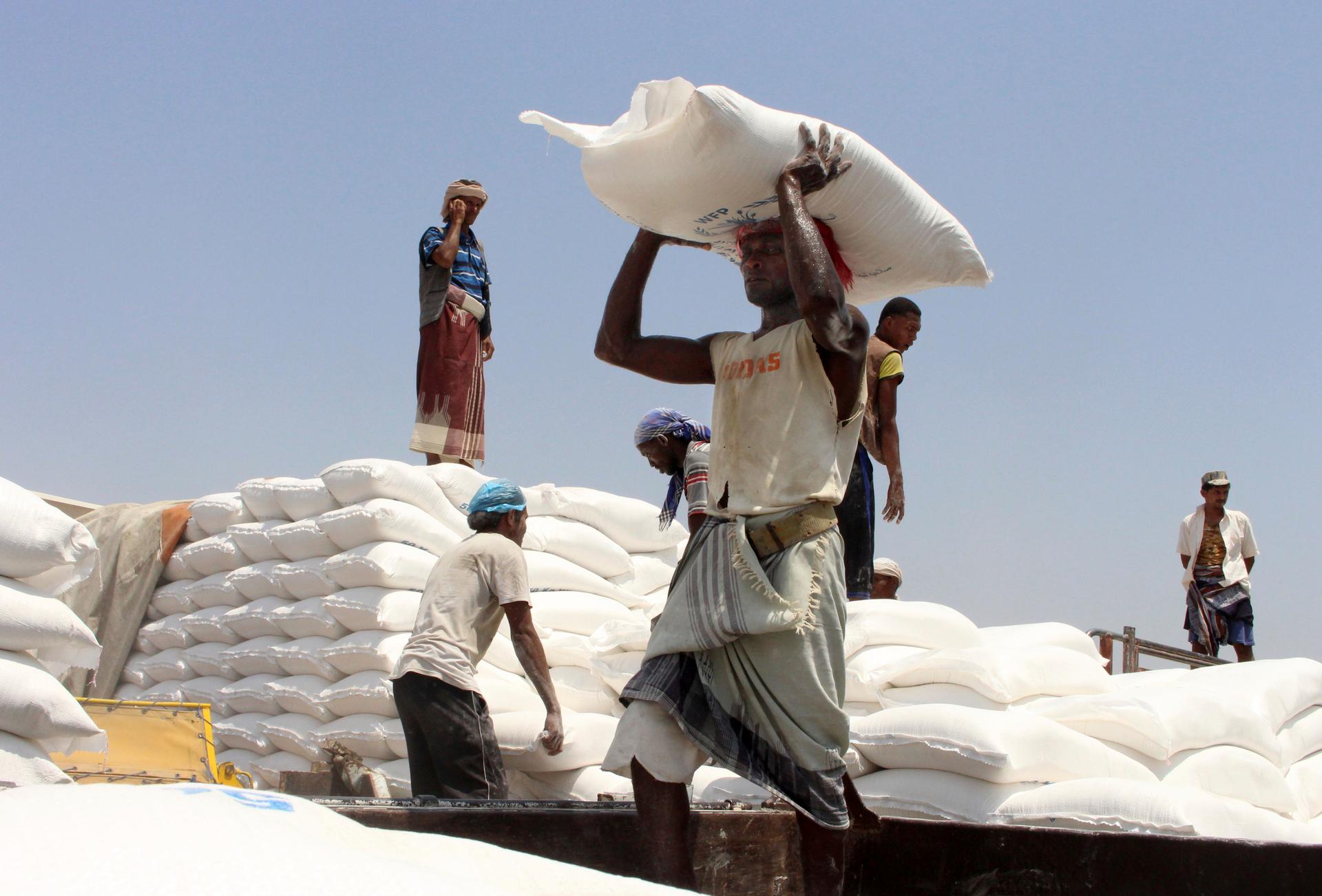Aid organizations that rely on donations by Americans to fund their work in war-ravaged Yemen are on edge.
Media reports have suggested that the Trump administration, in its waning days, may designate Yemen’s governing Ansar Allah movement — also called the Houthis — as a foreign terrorist organization (FTO).
The Houthis, whose name derives from the founder’s family, overthrew Yemen’s democratically elected government in 2015. Since then, the Houthis have imprisoned and tortured opponents of their regime, and they continue to lay siege to areas not under their control.
But they also act as a national government, ruling over the populous northern region of Yemen, including the capital, Sana’a.
Related: In Yemen, war is ‘trumping peace’
If the United States labels the Houthis as an FTO, many aid activities in Yemen will stop.
“Designation would make it generally illegal for anyone to transact with Ansar Allah armed group [the Houthis] or the government they control in Sana’a,” said Scott Paul, humanitarian policy lead for Oxfam America. “And depending on how it’s designated, it might also prohibit the provision of any form of support, anything as small as a slice of pizza at a training.”
The war in Yemen has killed 100,000 people, left Yemen’s economy in shambles and forced most of Yemen’s 30 million people to survive on food, fuel and cash payments provided by foreign aid organizations that work in Yemen with the consent of the Houthi government.
‘Strengthening public and social services’
The US aims to increase pressure on the Houthis — who receive support from Iran — to negotiate a settlement with the opposing Yemeni government, which is backed by Saudi Arabia. A US State Department spokesperson told The World, “Our focus is on supporting a comprehensive political agreement that will end the conflict and resolve the dire humanitarian situation.”
The Houthis would join al-Qaeda, al-Shabab and ISIS on the list of groups designated by the US as foreign terrorist organizations. And while the Houthis share some of these militant groups’ more brutal characteristics, their members also help manage essential public services, including health, sanitation, water, telecommunications and banking for tens of millions of Yemenis.
“We can’t simply go without interacting with the government in a place like Yemen,” said Paul. “Much of what we do is focused on strengthening public and social services.” He added, “Groups could be subject to fines or even criminal penalties for doing the work that they’ve been doing for the last five and a half years in this humanitarian response.”
Aisha Jumaan, a Yemeni American, runs a US-based charity that works in some of Yemen’s most inaccessible places. “We’re not going to be able to send funds to Yemen anymore for any of our operations,” said Jumaan. Her charity, Yemen Relief and Reconstruction, distributes food baskets to thousands of families in need.
“And these people, we’re their last chance,” she added. “These people have nothing to eat. These people will know that the rest of the world, led by the US, says you don’t matter.”
‘Need to change their behavior’
The US State Department does not publicly discuss deliberations regarding potential designations. But a department spokesperson, responding to The World, wrote, “We do believe strongly that the Houthis need to change their behavior and stop exacerbating Yemen’s humanitarian crisis; stop arbitrarily detaining people; stop attacking civilian populations, infrastructure, and shipping; and stop working with the IRGC [Iran’s Islamic Revolutionary Guard Corps], a designated foreign terrorist organization.”
Some Yemenis support the idea of designating the Houthis as terrorists. “There was a protest last week,” Afrah Nasser, a Yemeni researcher who works with Human Rights Watch, said of a demonstration in the besieged central Yemeni city of Taiz.
“People were holding banners that said, ‘With one voice, we demand the designation of the Houthi armed group as a terrorist group,’” she added. “I understand the unspeakable suffering of civilians in Taiz who have faced indiscriminate shelling and attacks. But the designation in and of itself will not provide justice for victims in Taiz, or any place in Yemen.”
While a designation may not bring justice to Yemeni victims of the Houthis, some observers believe it could pressure the Houthis into negotiating with the Saudi-backed Yemeni government.
“This is what the Trump administration and people such as Secretary of State [Mike] Pompeo have been arguing,” notes Gregory Johnsen of the Brookings Institution. “They’re saying that the international community does not have a great deal of leverage over the Houthis, and designating them as a foreign terrorist organization would give us a stick to compel them to make a deal with the Saudi-led coalition.”
Johnsen, who served on the UN panel of experts which oversees a sanctions program in Yemen, does not believe that a terrorist designation would have the intended effect.
“Designating them as a foreign terrorist organization and essentially criminalizing activity, which would cut off humanitarian aid into Houthi-controlled areas, it’s not going to do much good.”
The State Department has not yet made the designation.
“From everything that I’m seeing from people that I’ve been speaking with in Washington, it appears as though the Trump administration really wants to make this happen.”
“From everything that I’m seeing from people that I’ve been speaking with in Washington, it appears as though the Trump administration really wants to make this happen,” Johnsen told The World.
“I know that internally there has been significant resistance from a number of different departments, whether that’s in the Department of Defense or the State Department,” he added.
“It’s unclear whether the Trump administration will be able to override those professional concerns and make this designation on their way out the door,” Johnsen said, predicting that a decision could come in the next couple of weeks.
Correction: An earlier version of this article misidentified the humanitarian policy lead for Oxfam America. His name is Scott Paul.
